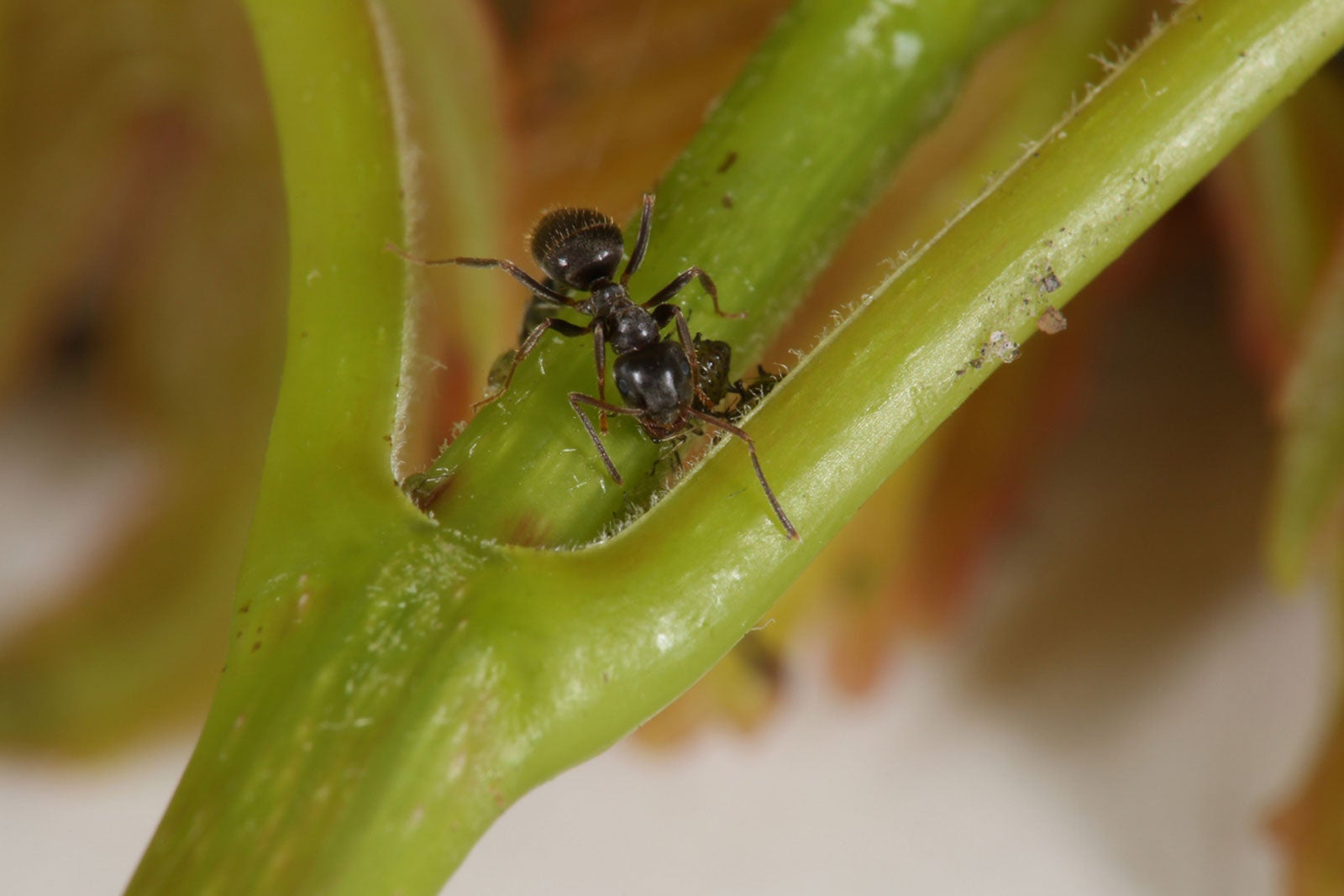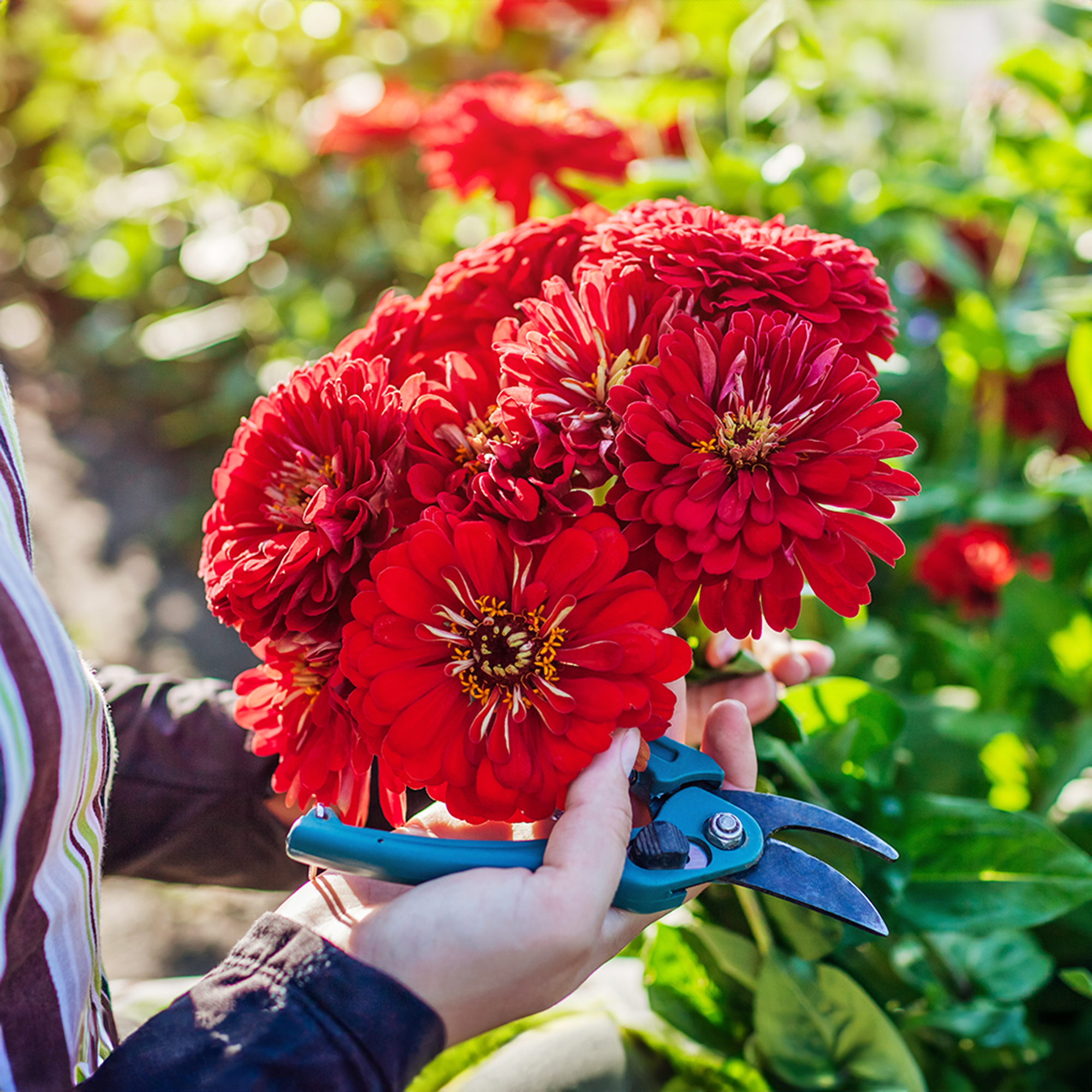Ridding Greenhouse Of Ants: How To Control Ants In A Greenhouse


You may expect ants in food prep areas, such as your kitchen. If you grow orchids, seedlings, or other ant delicacies in your greenhouse, though, you are likely to see them there too.
Ants in a greenhouse can do a lot of damage to plants. You may ask yourself, “how do I keep ants out of my greenhouse?” Read on for information about the prevention of ants entering greenhouse areas as well as tips on ant control in greenhouses.
How Do I Keep Ants Out of My Greenhouse?
It’s helpful to take preventative action before you see ants in your greenhouse. You can surround the greenhouse with coffee grounds, a product the insects do not like. Note that you’ll have to replace the grounds fairly often, however, as they break down quickly.
A tougher alternative is to spray the perimeter of the greenhouse with border pesticides. That being said, chemicals are usually best left as a last resort.
Ants Entering Greenhouses
If you know where ants are likely to enter your greenhouse, you can position ant-repelling substances at the potential entry points. This is also the appropriate action if you see a line of ants entering a greenhouse.
Ants are said to dislike many things including citrus, dried mint leaves, brewers’ yeast, baby powder, cayenne pepper, and lemon juice. Cucumber slices repel many ants and garlic cloves are said to be effective as a barrier.
Not every product will work for all species of ants. Trying one at a time is best in order to see what works with the type of ants involved in your situation.
Gardening tips, videos, info and more delivered right to your inbox!
Sign up for the Gardening Know How newsletter today and receive a free copy of our e-book "How to Grow Delicious Tomatoes".
Ant Control in Greenhouses
Once you see ants in a greenhouse, your challenge is to rid the ants without harming the plants or crops. That means that you’ll prefer nontoxic options when ridding a greenhouse of ants.
You can use orange oil to start. Many natural insecticides contain orange oil and spraying these on ants will help relieve the area of them. You can also make your own insecticide using 3/4 cup (177 ml.) of orange essential oil, one tablespoon (14.7 ml.) of molasses, one tablespoon (14.7 ml.) of dish soap, and one gallon (3.78 L.) of water.
Any product that kills ants can provide ant control in greenhouses. Try insecticidal soaps containing orange or peppermint oil. Spray this directly on the ants and around the area you find them. Creating a spray product of water with dish soap also works to kill ants.
Many gardeners use ant traps, those small boxes containing ant bait that draws the insects into the little “doors” in the traps. Don’t expect these to be effective immediately at ridding greenhouses of ants. The idea is that the ants carry the product back to the colony so that all of the insects are poisoned.
Note: Any recommendations pertaining to the use of chemicals are for informational purposes only. Chemical control should only be used as a last resort, as organic approaches are safer and more environmentally friendly.

Teo Spengler is a master gardener and a docent at the San Francisco Botanical Garden, where she hosts public tours. She has studied horticulture and written about nature, trees, plants, and gardening for more than two decades. Her extended family includes some 30 houseplants and hundreds of outdoor plants, including 250 trees, which are her main passion. Spengler currently splits her life between San Francisco and the French Basque Country, though she was raised in Alaska, giving her experience of gardening in a range of climates.
-
 Zinnias On Repeat: 10 Glorious Cut-And-Come-Again Varieties For Endless Summer Bouquets
Zinnias On Repeat: 10 Glorious Cut-And-Come-Again Varieties For Endless Summer BouquetsThese zinnia varieties keep giving all summer, making them the perfect choice for dedicated cutting gardens – or just the occasional homegrown bouquet.
By Ellen Wells
-
 Create A Romantic Garden Straight Out Of Bridgerton: Regency Era Romance In Your Garden
Create A Romantic Garden Straight Out Of Bridgerton: Regency Era Romance In Your GardenTry some romantic garden ideas straight out of Bridgerton. Flowers and gardens in the Regency era were lush and charming and you can get the same look!
By Bonnie L. Grant